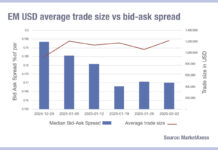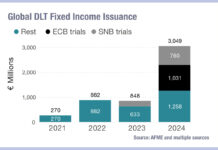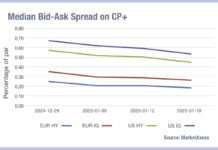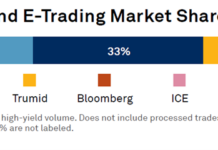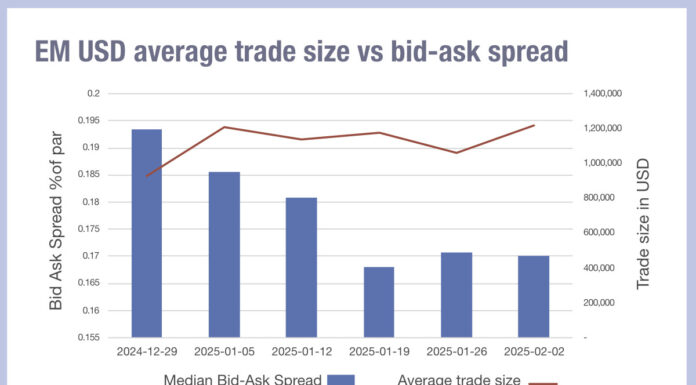The European Securities and Markets Authority (ESMA) has said markets remain “very sensitive”, despite lower volatility earlier this year.
Markets remain sensitive to interest rate changes, deteriorating credit risk and to political and electoral developments, the regulator said, with a “high risk” of corrections within the context of market liquidity in equities and other markets.

ESMA chair, Verena Ross, said: “Markets are getting more nervous about the economic outlook and political events, as the dip in equity valuations in early August and market volatility around recent European and French elections shows.
“Close monitoring of the financial markets in our remit and strong coordination of supervisory efforts with national authorities remains our priority.
We continue to see risks in the fund area linked to liquidity mis-matches, particularly in the real estate sector, and deteriorating quality of assets linked to interest rate, credit risk and valuation issues.”
The findings come from ESMA’s second risk monitoring report of the year, which also provides an update on structural developments and the status of key sectors of financial markets, during the first half of 2024.
The risk monitoring report found that capital availability for European corporates through capital markets has been broadly stable in 2024 so far. Despite the market environment remaining “very challenging” for equity issuance, there were signs of improvement in IPO activity.
Corporate bond issuance was high in the first quarter of 2024 but fell in the second quarter of the year. “The corporate bond outlook continues to show a significant upcoming maturity wall from 2024 until 2028. In this context, corporate debt sustainability remains a considerable risk, especially in lower quality segments.”
In securities markets, ESMA found that asset prices in early 2024 trended upwards with little volatility suggesting future rate cuts were being anticipated.
Episodes of market volatility took place linked to elections in the EU in June and July, and a short-lived dip in global equity valuations in early August was associated with weaker-than-expected US macroeconomic indicators.
In fixed income markets, corporate bond spreads have continued to fall, especially for high-yield corporates while the credit quality of high-yield non-financials has continued to decline, particularly real estate. “This may indicate search-for-yield behaviour with a possible underestimation of risks,” ESMA noted.
In asset management, EU fund performance was positive across categories and funds exposed to fixed income instruments (bond funds and MMFs) recorded inflows.
The increase in interest rates has been offset by a broad-based market perception of declining credit risk, reflected in low credit spreads.
However, bond fund portfolio credit quality, as measured by credit rating, has continued to deteriorate, ESMA found, raising the risk of a disorderly repricing of risky assets.
“Risks continue around liquidity risks and potential losses related to interest rate, credit risk and valuation issues. Open-ended real estate funds remain particularly vulnerable given their structural liquidity mismatch and downward pressure on valuations in housing markets,” ESMA noted.
©Markets Media Europe 2024

